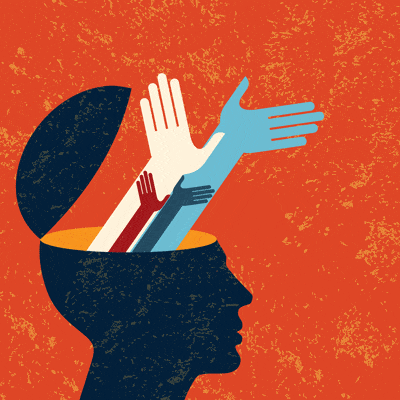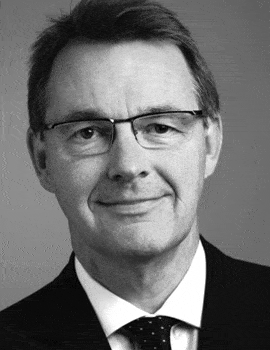Parsons first shared his personal struggles, medication, and experience of mental ill-health during the ‘This is Me’ campaign a City of London initiative aiming to encourage openness on the subject and address the stigma attached to mental illness.
Since then, Chris has travelled to different countries to conduct deeper conversations and deliver trainings on the topic with colleagues and clients, actively promoting awareness of mental health and frankly discussing his own vulnerable moments.
In the following article, Parsons shares with fivehundred what his firm has been doing to reduce the stigma surrounding mental ill-health, resulting in the creation of a more inclusive and supportive workplace for its people globally, as well as offering some top tips for those readers currently struggling.
2019 marks the tenth anniversary of our mental health programme which aims to raise awareness of mental health, support people in managing their wellbeing, and to promote optimal mental health. Over the past decade, we have made conscious efforts to ensure people feel safe and comfortable to discuss their mental health, know how to support others, and proactively build optimal mental health. We are proud of the progress we have made so far, but there is still more we can do to ensure everyone thrives at the firm.
In 2015, our Mental Health Champions programme was established in the UK and EMEA, with Australia following in 2018. Our champions come from all levels of the business and undertake training to better understand common mental health conditions and signpost individuals to the most appropriate support.
In October 2018, we announced a global health and wellbeing commitment encouraging people to prioritise their health and wellbeing. Later this year we will be launching our global mental health strategy and ‘How We Work’ guidelines, designed to encourage more efficient and balanced ways of working.
And earlier this year, we signed the Mindful Business Charter as part of our commitment to not only respond to mental ill-health, but to more broadly think about the way we work removing unnecessary sources of stress and improving areas such as communication, working hours, and more mindful delegation of work.
Our vision is to be a firm where our people are working in a way that they feel is sustainable, rewarding, and consistent with their values; where we can talk openly about mental health without fear of stigma; and where we know how best to support others and ourselves.
By supporting people to thrive and prioritise their mental health, and to consider that of those around them, we strengthen engagement and a sense of belonging. This in turn positively impacts business outcomes and excellence in client service. Some of the initiatives taking place in different parts of our network are:
- Events, including key note speakers, panels, film screenings, and book launches where the focus is on raising awareness and bringing people together to discuss mental health many of these events are video-conferenced into a number of our offices across the network.
- Workshops with external providers where the aim is encouraging better understanding of an individual’s personal mental health, sharing practical steps to promote better wellbeing, and how to access further support.
- Mental health lectures and first-aid courses run by external mental health/education institutions sponsored by the firm.
- Publications and intranet features on mental health and well-being topics.
- Senior leaders champion mental ill-health issues in the workplace and share their own stories.
Our people have access to 24/7 counselling and support via our externally provided Employee Assistance Programme. This is also available to immediate family members and extends beyond mental health to broader wellbeing issues including nutrition, sleep, financial hygiene, and social connection.
Moreover, we have an online platform for employees to access useful information about health and wellbeing, medical services, relevant training and events, guides and publications, and external resources.
The critical part in all of this is awareness. We need to talk more about mental health so that it is no longer taboo. My vision is that one day mental health and addiction will be treated in exactly the same way as physical illness and that taking time off to get well won’t impact anyone’s career negatively.
Top tips for improving your mental health
- Talk. A good counsellor can make a huge difference to how you manage and achieve your mental wellness. They are able to identify the possible causes of mental health fatigue or illness, and devise a treatment plan. If the first counsellor you speak with doesn’t really connect with you, try another.
- Sleep! Regular and sufficient sleep (eight hours) is crucial for both your physical and mental health if you haven’t read the book Why We Sleep by Matthew Walker already, I highly recommend it.
- Exercise. We all know that good physical health contributes to mental health. Exercise and relaxation including meditation are beneficial to our wellbeing.

